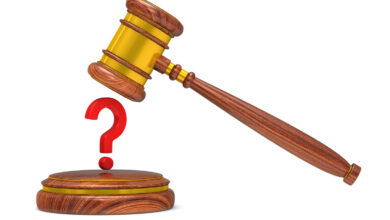Trump Is Setting The Stage To Fire Mueller
If you are counting on Special Counsel Robert Mueller completing an investigation that gets to the bottom of Donald Trump’s complicity in Russia’s interference with the 2016 presidential election, think again.
It still may happen, but it is becoming less likely by the day.
As I wrote in early June (“No, We Can’t Rely On The Special Counsel To Uncover The Cover-up”), there’s no legal or structural guarantee that Mueller will be allowed to complete his investigation, or that his findings will be disclosed if he does. There are too many ways a president, acting through his Attorney General, can get rid of or defund the Special Counsel, or simply terminate the investigation.
And even if Mueller is allowed to complete the investigation, there’s no guarantee that the public will ever see the results. Yes, leaks are always possible, but if the Attorney General is the only person with full access to Mueller’s final report, which is a distinct possibility under the governing law, the report may not be disseminated widely enough to guarantee a leak.
This week brought the strongest signals to date that Trump is intent on using the full power of the presidency, and more, to sabotage, and eventually end, the Special Counsel’s investigation.
In a remarkable interview with the New York Times on Wednesday, Trump found a way to trash every individual with a direct or indirect hand in shaping the Russia investigation.
He accused both the Special Counsel and the Deputy Attorney General to whom he reports, Robert Mueller and Rod Rosenstein, of being burdened by crippling conflicts of interest. He even accused Rosenstein of having the geographical disability of being from Maryland, where Trump thinks Republicans don’t grow.
He saved his most cutting comments for his own Attorney General, Jeff Sessions. In a transparent attempt to bully him into resigning, Trump said that Sessions should never have recused himself. Trump would have appointed somebody else if he had known. Recusing himself without advance notice was “very unfair,” to say the least, to Trump.
Why does Trump want Sessions to go? As I discussed in an article last month (“Trump Is Likely To Get Rid Of The Special Counsel, One Way Or Another”), getting rid of Sessions is the key to getting rid of Mueller. As things stand now, Sessions isn’t in control of the Russia investigation because he has recused himself. That oversight currently resides with Deputy Attorney General Rosenstein. Rosenstein, aside from being geographically challenged, is far too independent for Trump’s taste. As long as the recused Sessions remains Attorney General, terminating the Special Counsel investigation will remain problematic, to say the least.
But if Sessions leaves, Trump can appoint a more compliant Attorney General who won’t recuse himself from the Russia investigation. The new Attorney General would take ownership of the Special Counsel’s investigation, including the authority to fire Mueller or simply terminate the investigation with the stroke of a pen.
Then why doesn’t Trump just fire Sessions, instead of bullying him to resign? Because firing Sessions would be a direct act by the President for which he could be held legally, morally and politically accountable. If Sessions “voluntarily” resigns, Trump gets exactly what he wants, a new Attorney General who will fire Mueller, without Trump leaving his fingerprints at the scene of the crime.
Can’t you just hear it? “I never would have fired Sessions. He’s a great American and he was doing a tremendous job for the American people. And I never told Rudy [or Newt, or Chris or whatever crony he puts in the job] to terminate the investigation. Just the opposite, I wanted the investigation to continue because I knew it would vindicate me. But it’s the Attorney General’s call, and I can’t say he’s wrong.”
At the same time Trump manipulates the players, he’s also building a case for the next Attorney General to fire Mueller. The case may be entirely phony, but that’s never bothered Trump.
As reported today in the New York Times, “President Trump’s lawyers and aides are scouring the professional and political backgrounds of investigators hired by the special counsel Robert S. Mueller III looking for conflicts of interest they could use to discredit the investigation — or even build a case to fire Mr. Mueller or get some members of his team recused, according to three people with knowledge of the research effort.”
Trump has also begun a public campaign to keep Mueller’s investigation away from any scrutiny of Trump’s tax returns and financial dealings. The charge that Mueller is exceeding the scope of his authority will be added to the phony conflict of interest charges in Trump’s case against Mueller.
And, as reported today by the Washington Post, Trump has asked his legal team for advice “about his power to pardon aides, family members and even himself in connection with the probe.” One advisor, clearly auditioning for a slot on Saturday Night Live, explained that Trump “has simply expressed a curiosity.”
No big deal, right?
So, what happens if Sessions resigns, Trump appoints a new Attorney General, the new Attorney General terminates Mueller’s investigation, and Trump pardons Don Jr., Manafort, Jared, Flynn, himself, and anybody else who might be implicated in Russia’s meddling with our election? All for the supposedly high-minded purpose of getting rid of a national distraction so that Trump can be freed to accomplish his supposed agenda for the American people.
That scenario could trigger a constitutional crisis that would make Watergate look like, well, a third-rate burglary. Democrats would undoubtedly do whatever they could to launch impeachment proceedings, but they would need the support of Republicans in Congress to get the job done. One would suppose that a “Friday Night Massacre” scenario would finally sway Republican leaders to scream “enough,” but so far they have lined up squarely behind Trump.
Impeachment or not, a pardon by the President would not shield those pardoned from all legal jeopardy. They could still be charged in state courts with violation of any state laws. The “Pardon Information and Instructions” posted on the Department of Justice website make it clear that “only federal criminal convictions” may be pardoned by the President. However, “the President cannot pardon a state criminal offense.”
In addition, neither terminating the Special Counsel investigation nor pardoning those who may have committed crimes would stop Congress or the press from continuing their own investigations.
While Trump doesn’t have legal authority to terminate investigations by either Congress or the press, he is nevertheless doing his best to sabotage both.
In a relentless war on truth, Trump is doing everything he can to undermine the credibility of the press. I will write about Trump’s war on truth shortly.
And in an equally relentless war on non-compliant congressional Republicans, Trump is using his office to bully and threaten House and Senate Republicans who refuse to toe the line. Although recent polling suggests that Trump may have lost sufficient public support to back up his bullying of congressional Republicans, he won’t go down without a fight. I’ll also be writing about Trump’s abuse of power.
Stay tuned.




